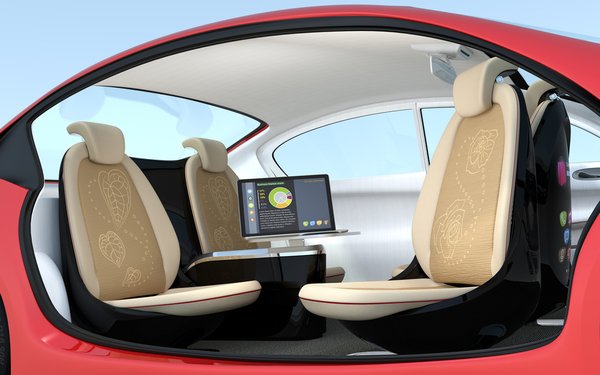
One of the promises of self-driving cars is the
potential of new forms of marketing to the people in those cars.
Even though self-driving cars are a work in progress, researchers nonetheless are searching for what drivers expect they would
do should they find themselves in a self-driving car.
One survey by Morning Consult earlier this year found that the majority of consumers say talking on the phone would be acceptable while
watching TV or reading would not, as I wrote about here at the time (Self-Driving
Cars: 23% Would Ride In One, 83% Concerned About Tech Glitches).
A new study now suggests that drivers have plenty of ideas on what they might do in a self-driving car, though many have a
range of concerns.
advertisement
advertisement
If the commute suddenly became free time because of self-driving cars, most people would catch up on their reading, call friends or family by phone or get work done, based
on a survey of 2,000 drivers from around the world conducted by the Auto Insurance Center.
With an average commute time of 26 minutes each way, the Auto Insurance Center points out that other
activities, such as taking the kids to school or going to the grocery store, would add even more to the total time spent in cars.
While more than a third (36%) of U.S. drivers would still
watch the road if their car was self-driving, the other group noted what they would likely do in that car. Here, in order, are what drivers said they would be most likely to do while in a self-driving
car:
- Read a book
- Catch up with friends and family via phone
- Get work done outside the office
- Watch a television show
- Watch a movie
- Eat
- Play video games
- Sleep
- Engage in sexual activity
- Pray
- Play a card game
- Exercise
- Drink alcohol
- Online dating
- Do drugs
A number of drivers, 23% in the U.S. and U.K., 33% in Japan and 3% in China, said they would not ride in a self-driving car. Many drivers still have concerns about
autonomous cars, most notably about giving up control of the car. Here’s what drivers said they would be most afraid of while riding in a self-driving car:
- 42% -- Not having
control of the car
- 35% -- Getting in a car accident with another vehicle
- 13% -- Hitting a pedestrian
- 10% -- How the car handles weather conditions
Self-driving cars continue to be developed and road-tested. Others in the market are starting to consider what the activity and ultimately messaging will be most logical for the people in those
cars.
Still to be determined is who those people might be.